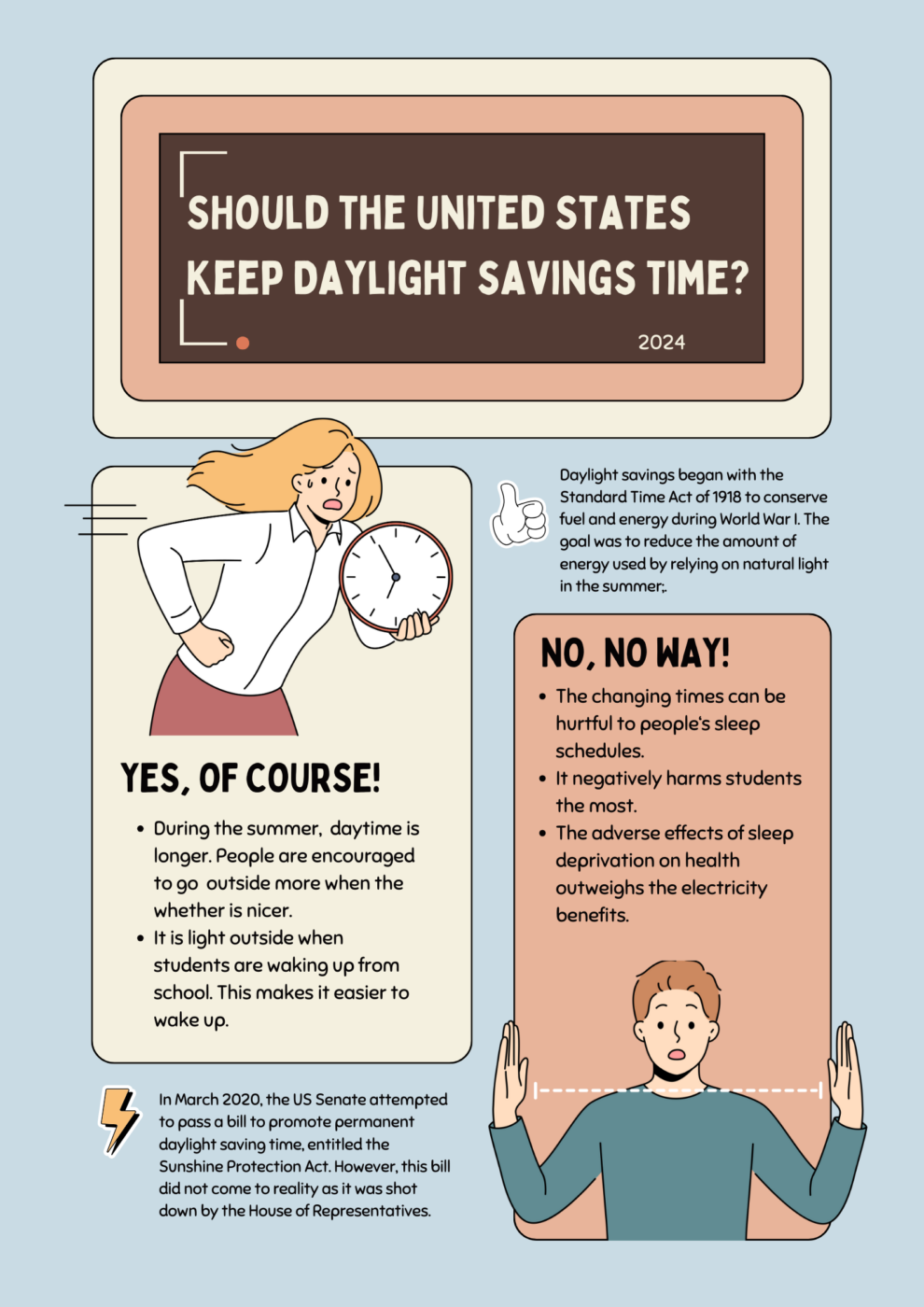During World War I, the US government passed the Standard Time Act of 1918 in an attempt to conserve fuel and energy for the war. People would wind their clocks forward one hour in the spring, then wind them back in the fall. They hoped that this method would rely on the more natural light in the summer, when the days were longer, and reduce the amount of electricity and energy needed. The application of daylight saving time continued after the war, and has lasted all the way up to the modern day. However, recent debates have questioned the necessity for such practices. The practicality of daylight saving time has declined over the years, and lately, changing the clocks has seemed more like an inconvenient chore than a feasible strategy to save energy. The question remains: should the United States keep daylight saving time?
Sophomore Jocelyn Zheng is wholly against the idea. She raises concerns about the negative impact daylight saving time has on people’s sleep schedules, an ongoing problem that has gained a lot of attention in recent years. “It’s super difficult to deal with the time change, especially as a student who has to wake up early,” Zheng explains, “For me, it’s not worth it for the extra daylight.” She understands the benefits daylight saving time has on saving fuel and energy, but remains steadfast in her opinion. “The negative effects of sleep deprivation on our health outweighs the fuel and electricity benefits for me,” she concludes. The inconvenience of this time change may be outdated as of today. Should we really keep a practice in place that was created during an entirely different time?
Meanwhile, freshman Karly Vilato has a different take on the matter. She sees daylight saving time as a positive practice that allows people to fully take advantage of the different seasons. “In the winter, when it gets dark early, I feel more cozy,” she shares, “But in the summer, it’s so much better when you get to go outside. Sometimes, it doesn’t get dark until eight or even nine o’clock.” She believes that the longer daylight hours in summer lead people to spend more time outdoors, saying, “It’s so nice out, so it encourages you to go outside more.” Does daylight savings time encourage people to emerge themselves in the change of seasons?
Though it’s clear that daylight saving time has both its pros and cons, it’s unclear how the US government will continue handling this issue. The Sunshine Protection Act, a bill passed in March 2022 by the Senate, promoted permanent daylight saving time, eliminating the inconvenience of having to constantly change the clocks. However, the bill was shot down in the House, and didn’t end up becoming a reality. So, as of today, daylight saving time is still in use. But with the mounting protests and criticism, that may very well change in the near future.







